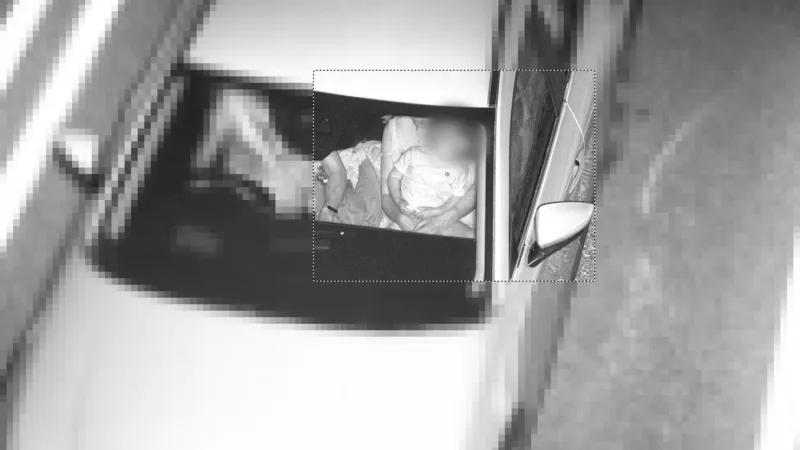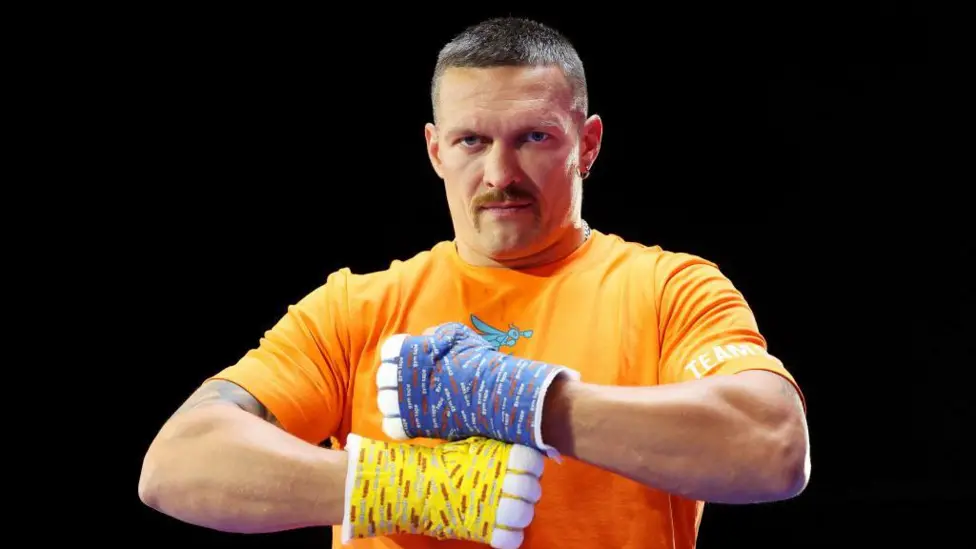AI cameras spot toddlers not wearing seat belts
An unrestrained toddler sitting on a woman's lap in the front passenger seat was among thousands of people caught on camera not wearing seat belts on Devon and Cornwall roads, police have said.

Police said 109 children were among more than 2,000 detected by artificial intelligence (AI) cameras on three A-roads in the region between July and August.
Adrian Leisk, head of road safety for Devon and Cornwall Police, said it was "truly alarming" children were among those captured on camera and he called for seat belt offences to attract penalty points.
Seth Marks, who was left paralysed in a crash at the age of 18 after failing to wear a seat belt, backed Mr Leisk's call for tougher penalties.
Police said people were not considering the dangers of failing to wear a seat belt
Mr Leisk said officers would be visiting the guardians of the children detected for a "safeguarding check".
"I'm struggling to understand why people think it's OK not to wear a seat belt, particularly young people in their vehicles," he said.
"In the event of a forward collision or if the vehicle were to brake sharply, the weight of the parent would crush the child against the front of the car."
He said seat belt offences - which currently carry a fine up to £500 - should also attract three points on a driver's licence.
The BBC has asked the Ministry of Justice whether the law may change in the future.
Seth Marks urged people not to make the same mistakes as him
Seth Marks, from Yelverton, had turned 18 when he was left paralysed in a car crash in west Devon in May 2022 after not wearing a seat belt.
He said day-to-day life was a struggle and he was "completely dependent on his carers and mum".
"I broke the back of my neck and I've now got a spinal cord injury... I'm paralysed from the shoulders downwards," he said.
"I can't do anything for myself any more."
'Wrong decision'
Mr Marks said he was "surprised" by the AI camera findings and thought seat belt offences should lead to penalty points.
"Wearing a seat belt would have changed things," he said.
"I made the wrong decision... now I've got the rest of my life to get over it."
Vision Zero A child sits cross-legged in the front passenger seat of a car with no seatbelt while the adult driving wears a seatbeltVision Zero
Police said parents and guardians would receive a "welfare visit" to ensure children's safety
Between 25 July and 17 August 2024, 2,239 seat belt offences were detected by AI cameras on the A388 between Saltash and Launceston, the A361 between Barnstaple and Braunton and the A38 near Landrake, police said.
More than 800 mobile phone offences were detected in the same period, statistics from the road safety unit Vision Zero showed.
Mr Leisk said cases involving children were a "safeguarding issue".
"There is a requirement on us to follow up to assure ourselves that the child isn't at any further risk in their home," he said.
Gary Williamson, a manager on the force's Road Safety Team, said: "Once we are aware of who was driving those welfare visits will be carried out."
He said he "hoped parents would be surprised and shocked" by a visit from police.
How do AI cameras work?
A trailer mounted with AI cameras on the left of the shot, with the A38 on the right side with vehicles on the road
The AI cameras, which face both ways can look into cars to detect offences, are mounted on trailers
The cameras are mounted to a vehicle or trailer and can automatically detect if motorists are committing an offence
Three Acusensus camera systems are operational in Devon and Cornwall, with locations changing regularly during the 12-month project
Cameras have high shutter speeds, an infra-red flash and a lensing and filtering system to record clear images of passing vehicles
Police said the AI cameras would be moved around over a 12-month project, which started in August 2024, with future sites to include Plymouth and Torbay.
Mr Leisk said the scheme, funded by fines from road offences, was costing "hundreds of thousands" of pounds but did not disclose the exact amount.
The technology was developed in 2018 by Australian firm Acusensus.
Managing director Alex Jannink said he began researching the system after a friend died in a car accident.
He said the technology had been "hugely effective" in changing driver behaviour in areas of Australia, with mobile phone offences changing from "one in 80 to one in 600".
Lucy Straker, from road charity Brake, said it was "heart-breaking" to see the number of people "disregarding seat belts".
"Especially when young children are involved," she said.
"We are relieved that in these instances no one was hurt or killed.
"It is important for us all to act responsibly and set a good example to our children, so that they can become responsible road users as well."
-BBC






